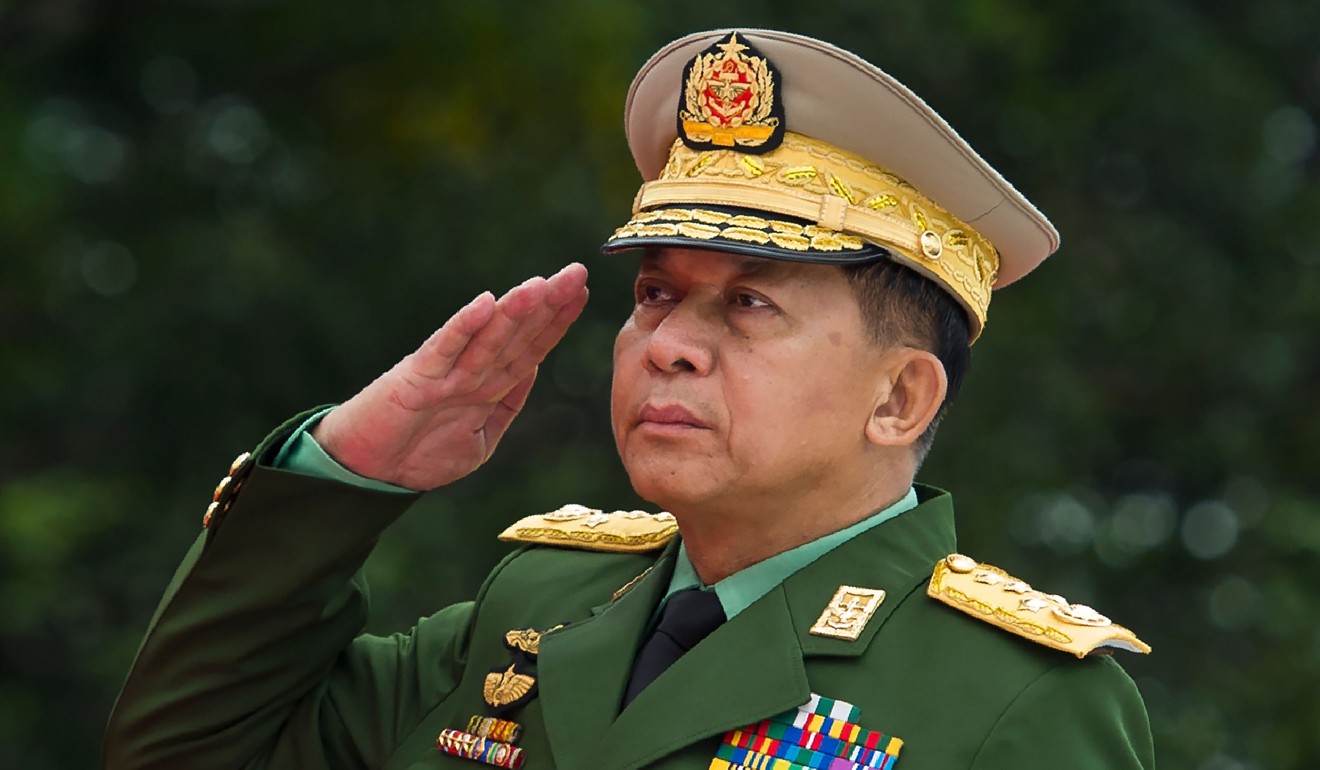
Aung San Suu Kyi will answer for Myanmar’s Rohingya genocide at The Hague
- Myanmar is accused of systematic rape, torture and murder of thousands of Rohingya Muslims that forced more than 740,000 people to flee to Bangladesh
- On Tuesday, the International Court of Justice will begin hearings on only the third genocide case it has heard since World War II
Suu Kyi in her capacity as state counsellor will lead a team to defend Myanmar against the accusations largely directed at the same military apparatus that for 14 years kept her under house arrest until her release in 2010. The decision to appear before the court comes despite overwhelming evidence of guilt, while Suu Kyi herself is accused by UN investigators of “complicity” in the atrocities.
With China-backed Myitsone project, Aung San Suu Kyi is damned either way
The trial marks a low point for the reputation of a democracy icon who during her political rise in Myanmar’s 2015 elections was often compared to the likes of Nelson Mandela.
“It’s hard to think of figure in modern history who’s public perception has fallen so sharply,” said Murray Hiebert, a senior associate of the Southeast Asia Programme at the Centre for Strategic and International Studies in Washington and former senior director for Southeast Asia at the US Chamber of Commerce.
Filed in November by the small Muslim-majority African nation of Gambia, the case argues Myanmar is in violation of the 1948 Convention on the Prevention and Punishment of the Crime of Genocide after security forces engaged in widespread “clearance operations” in Rohingya villages that began in earnest in August 2017. Myanmar has been a member of the convention since 1956.
Since then, international organisations have withdrawn a number of accolades from Suu Kyi including the US Holocaust Museum’s Elie Weisel award and Edinburgh’s Freedom of the City award. The latest came in November when Amnesty International withdrew its most prestigious human rights award, calling out Suu Kyi by saying, “you no longer represent a symbol of hope, courage, and the undying defence of human rights”.
On Sunday, Suu Kyi was photographed departing for the UN’s top court, smiling with a delegation as it left the airport in Myanmar’s capital of Naypyidaw.
Mahathir blasts Myanmar and UN over Rohingya ‘genocide’
“For clarity, the Lady is not the one who committed the alleged crimes,” Myo Nyunt, spokesman of the National League for Democracy, said in a phone interview, referring to Suu Kyi’s popular name. “She didn’t keep silent on this. We do believe in her sincerity about the truth, and she has taken the crucial responsibility to defend her country, which is admirable.”
Military spokesman Brigadier-General Zaw Min Tun, did not respond to multiple phone calls seeking comment.

Suu Kyi still enjoys wide support from the Bamar, or ethnic Burmese, who make up a majority of Myanmar’s 54 million population. On Saturday, thousands of supporters holding placards that read “we stand with our leader” took to the streets of Naypyidaw in defence of the woman they say is protecting Myanmar’s national interest.
“Our only hope is to encourage the Myanmar people’s love for the country,” Htin Lin Oo, one of the event’s organisers, said on Friday. “We aim to give some strength for the Lady who will face the trial on behalf of our country.”
US bans Myanmar military chief over Rohingya ‘ethnic cleansing’

With elections expected in the second half of next year, experts say the case will hardly impact support for Suu Kyi as the country grapples with bread and butter issues like expanding an economy that suffered under decades of isolationist rule.
“What’s important to remember is that the vast majority of people in Myanmar do not believe that thousands of Rohingya civilians were killed or even that 700,000 or more were forced to flee to Bangladesh,” said historian Thant Myint-U, author of the book The Hidden History of Burma. “In Myanmar, until the ICJ case came up, the Rohingya issue was far down the list of political priorities.”
Suu Kyi defends jailing of journalists who exposed Rakhine massacre
While he said the trial “will only catalyse ethno-nationalist feelings” feelings at home, observers including the United Nations note the Burmese do not associate the democratically elected government with crimes carried out by a military. The army has denied Suu Kyi the right to assume the presidency, while also maintaining a stronghold on parliament with a mandatory 25 per cent of all seats and automatic veto rights.
“Aung San Suu Kyi may think she is serving the national interests by going to The Hague, but if all she does is deny or defend the military’s actions, the only interest she will be serving is theirs,” said Nicholas Bequelin, East and Southeast Asia Director for Amnesty International. “She should be standing side by side with victims and survivors in the pursuit of truth and accountability.”

